Settlement periods, refund costs, and card fees can still be very low for international payments.
Most importantly, using a specialist cross-border payment gateway will reduce currency conversion costs. Not handled correctly, these costs can quickly start to eat into profits.
First off, what is an international payment gateway?
Think of an international payment gateway as the digital bridge between a customer’s payment and the bank, designed to cross borders with ease. Its strength lies in adapting to global markets, offering localized payment options, currency choices, and even language preference. All of this is to ensure a smooth and familiar checkout experience for users worldwide.
The main features of payment gateway transfers
Payment gateways offer a number of features that can aid in helping an e-commerce business.
.png)
Multiple payment methods
Companies offer a range of payment methods. The most commonly supported are Visa, Mastercard and PayPal.
There’s also regular support for things like Paysafecard, Skrill, iDEAL and others.
Depending on the market you plan to operate, be clear on what you can and cannot accept.
.png)
Multi-currency support
Payment gateways will take the hard work out of multi-currency support and reduce overall cost.
Usually, a set fee is charged as a percent on a transaction and the rest is converted at the agreed exchange rate.
Sometimes, this rate is agreed as standard, for bigger companies, it may be possible to negotiate a better exchange rate.
.png)
Additional marketplace support
Marketplace support and different CMS are available.
WooCommerce, Magento, Shopify, and Amazon marketplace are the most common.
Beyond this, many payment gateway providers will also offer APIs.
.png)
Take regular subscription payments
If you have an e-commerce site with a subscription model, an international payment gateway can allow for taking regular payments as well.
For cross-border subscriptions, having these enter a local account vs having each individual transaction being subject to a fee and exchange rate, makes for a lot of potential savings.
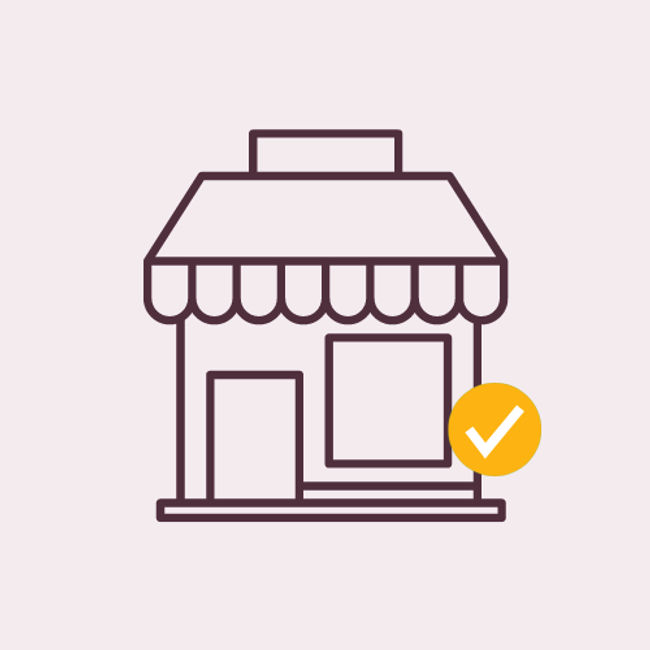
Physical POS support
Some providers will also offer physical POS support for domestic payments.
Again, this just makes everything a little more convenient.
Take physical orders in one currency, and online in another.
.png)
Full service offering
Using a payment gateway provider offers further support for other aspects of an e-commerce business.
It is possible to raise invoices, pay international staff, and action virtual cards (for things like ad campaigns) all within the same solution.
Providers in a little more detail
There are different providers available, offering different elements. Here they are in a little more detail.
Sokin
Sokin is a payment gateway with additional features. These include multi-currency accounts, and the ability to send international payments.
Transaction fees start from 1.20%, and settlement timeframes begin at 1 day. In contrast, Stripe can take up to 14 days.
Outbound payment options make Sokin more of a full-service cross-border offering. This is different to ‘just’ a payment gateway, where you may need to carry out these tasks on another platform.
Up to 5,000 batch payments can be sent, which is more than anyone else on the market. You will get access to 4 local accounts, and 75 IBAN accounts.
One thing you will not get with Sokin is physical payment support. As a result, it would not be suitable for any businesses looking to blend online and in-store payments.
Fondy
Fondy covers international payments from cards, e-wallets, or bank transactions.
Fees are higher for international transactions at 3.2% compared to others on the list. EEA payments start from 2%, which is more competitive.
Settlements are usually completed within the next working day. You’ll have access to 35 countries and 20 currencies in total, fewer than Sokin, Stripe or Airwallex.
Multi-currency accounts are offered in the form of IBAN accounts. These are supported in the 20 currencies available. For comparison, Sokin offers 75 IBAN accounts.
Fondy also supports recurring payments and billing options.
Airwallex
Airwallex, like Sokin, combines a payment platform with a range of other cross-border features.
International transactions start at 2.80%, making it more expensive than Sokin or Zen.com. Settlement timeframes usually within 7 days. However, you will need to build up a 30-day reserve before the first settlement is complete.
Airwallex also supports several native plugins across e-commerce platforms. These include Magento and Shopify, and accounting options like Xero and QuickBooks.
Airwallex allows you to batch payments for up to 1,000 recipients, and there’s access to 12 local accounts. Airwallex offers more local account access than anyone else on the market.
Zen
Zen is a multi-currency payment gateway offering immediate settlements in many cases.
There’s also a wide range of payment methods accepted, starting at competitive rates for the most common.
For example, Mastercard and Visa payments are charged at 0.89% + €0.30. However, for some payment methods (like Paysafecard), the amount can exceed 10%. It should be noted that most options between 1.50% and 2.50%.
Like Sokin and Airwallex, Zen offers access to local accounts (4) and IBAN accounts (28).
There’s integration support for Magento, OpenCart, WooCommerce, Prestashop, and a few more.
Subscriptions, recurring payments, and customer checkout links are supported. However, batch payments and physical checkouts are not supported.
Flywire
Flywire offers a payment gateway better suited for larger payments. There is a flat fee of $2 for receiving international payments. For regular, smaller payments, this can be a bit cost-ineffective. Settlements typically take 2-3 days, and support is available for over 240 countries.
With Flywire, you can automate invoicing across currencies, and lock in exchange rates. There’s also integration with accounting software. Support is included for Sage, Oracle, and Xero.
You won’t have access to multi-currency accounts, but payouts in different currencies are supported.
Rapyd
Rapyd is a payment gateway that, like Airwallex or Sokin, offers multi-currency accounts. In total there are 25 IBAN accounts, covering all major markets. Integrations include WooCommerce, Wix, Shopify, Magento, and many more.
Payment gateway charges start from 0.20% per transaction. International payments cost around 1.80%, depending on the payment method used.
There is no markup on the mid-market rate. An overall cost of around 1.80% makes it one of the cheapest options on the market.
Rapyd is also a strong option for regular or recurring payments. The API is robust—supporting in-app/live purchases at an enterprise level.
GoCardless
GoCardless is a payment option that takes payments exclusively from bank accounts. It cannot be used for accepting card payments. It is predominantly used within the B2B industry to accept payments for invoices and to create payment plans.
One of the key features of its international payment option is a partnership with Wise. This means all conversions are completed at the mid-market rate, with a 0% markup.
Settlements take around 5 days, and fees start from 2% on the GoCardless standard account. These fees rise to 2.4% on the pro account. The difference in cost grants access to additional fraud protection and support.
GoCardless is a leader in B2B payments. However, the need for alternatives is often driven by a lack of customer support.
WorldPay
WorldPay is an all-in-one global payment solution that caters to card machines, online payments, and POS systems. It’s also possible to create payment links. This versatile option supports 135 currencies and operates in 146 countries.
Accepted payment types include Visa Checkout, PayPal, and mobile payments such as Apple Pay and Google Pay.
Pricing starts at £19.95 per month, with fees beginning at 1.5% per transaction. Enterprise-level clients with higher turnover can have this fee waived. Settlements on WorldPay are between 3-6 days.
There are support options for industries that other companies may not serve. These include crypto and gaming businesses.
With its size and industry experience, WorldPay is a strong option. However, there are some features you may not find with WorldPay that you will get elsewhere.
For example, with Sokin and Airwallex, you can access multi-currency accounts. If using WorldPay, you would still need a multi-currency or local account partner as well.
The benefits of a multi-currency account also lead to additional options. It’s possible to make cross-border payments from the same location where you’re accepting them. This includes payments to staff or suppliers.
In some cases, like Airwallex, you can create unique flows for payments or expenses. This allows you to split budgets by country, team or function. Then using the accounts, fund these through finances already reconciled in that location.
Revolut
Revolut's offering includes plugins for WooCommerce and Shopify. Those on higher business tiers can also access an API.
Revolut Pay can be used to accept payments from anywhere via P2P payments. Card payments are also accepted, along with Apple Pay and Google Pay.
In total, 30 currencies are accepted for payment.
Fees start at 1% for Visa and Mastercard payments made within the country where your store is located. For international payments this is 2.8%.
Transfers to multi-currency accounts are charged at the mid-market rate for the first £1,000. This then increases based on the level of account you have with Revolut. This is usually between 0.4% and 1%.
Stripe
Like WorldPay, Stripe is a global leader as a payment gateway, but lacks additional multi-currency features.
For taking payments, 135 currencies across 46 countries catered for. Payment methods include standards like Visa, Google Pay, and Apple Pay. Then there's options for alternative payment methods like iDEAL and PayNow.
However, PayPal is not supported as a payment method with Stripe.
Checkout options can be set up using either an API or hosted on your site. Also, accounts can be connected to any physical stores you may have.
Despite offering most options for payments, there are many areas where Stripe falls short.
Firstly, fees are higher than many alternatives on the market, reaching as much as 5.25% in the worst cases. This 5.25% applies to non-EEA cards, with a charge of 3.25% + 0.20p (UK) and a currency conversion fee of 2% where needed. Average fees start at 1.50%.
In addition to cheaper alternatives, many opt to move away from Stripe due to a lack of customer service. Common issues include accounts being frozen, often without any insight. We would usually expect this to be a result of unexpected influx of payments or funds.
Similar to WorldPay, you will not get the same features for spending and sending money. Stripe would be an add-on to existing infrastructure rather than a centralised point.
Opayo
Opayo is a relatively new brand on the market but was previously known as Sage Pay.
With Opayo most big payment processors are accepted, including PayPal.
As mentioned, this isn’t possible with Stripe, so it could be a worthwhile alternative if this is important to you.
Payment fees start from 0.99% if you’re on a fixed option and 1.99% on the Pay As You Go plan.
Pay by link and terminal payments are also available with Opayo. Like Stripe and WorldPay, Opayo can provide a full end-to-end option if you are running a physical and online presence. This can also be set up as a hosted gateway or custom-built through an API.
International payments are accepted with currency conversion at the point of transaction. Local payment methods are also supported.
However, this is not available on the lowest packages offered, so you will need to pay to access this feature.
With Opayo work with an account manager. They also offer assistance with currency risk management.
Opayo is a better option for larger companies with higher volumes. On both fixed and PAYG plans, you will see transaction fees decrease themore payments you accept.
Checkout.com
Checkout.com processes payments in about 150 currencies and 50 countries,. There are 20 currencies available for settlement. Customer support options are available in 15 countries.
Notably, there are no foreign transaction fees.
You can also accept direct debits and Klarna payments from different countries.
Checkout.com is well-known for its fraud protection options. These include elements like built-in verification and KYC automation.
There are also currency risk options, including treasury management.
Mollie
Mollie is another recent entrant into the international payment space. In particular, the FCS granted them a license to operate in the UK in 2023.
The gateway is restricted to all EEA countries, Switzerland, and the UK. As a result, it is not suitable for operating US store. Settlements can be made in 8 currencies.
These are EUR, GBP, DKK, NOK, PLN, SEK, CHF, and USD.
Being newer to the market means Mollie is still developing as a product, so it’s possible to accept 29 currencies for payment. This is compared to the 140-150 mentioned with gateways like Stripe or WorldPay.
The payment methods accepted are wide-ranging, with Visa, Mastercard, SEPA, and iDEAL all included. You should note that some locations accept just PayPal, for example.
Fees with Mollie start from 1.20% + £0.20 for Visa or Mastercard payments, and 2.90% + £0.20 for other cards.
Companies processing over 2,500 transactions or €50,000 per month will access to better rates.
For the EU, Visa and Mastercard payments start at 1.80%, compared to 1.20% in the UK.
Overall, Mollie is a decent entry point. You might find that the company needs to develop a little more to become a real challenger in the international payments space.
Adyen
Adyen offers a nice blend of in-person and online payments across multiple locations. Payments can be accepted in local currencies, with multi-currency settlement supported. Settlements are dependent on the payment method and the location of the transaction. These can range from 3-10 days.
Fees are competitive, with Mastercard and Visa payments starting at 0.60% + 10p. Then it's around 2% for currency conversion and interchange fees. Payment fees in some cases can be higher. For example, accepting Amex has fees of 3.95%.
Adyen offers flexible options in terms of locations and multi-currency payouts. However, it doesn’t provide the same level of freedom as, say, Sokin. With Sokin, fees start at 1.20% and you can make payments into multi-currency accounts. These accounts can be used to make payments or earn interest on balances as well.
PayPal
PayPal is the biggest payment gateways in the world. The nature of the ‘out of the box’ option offered makes it popular for local payments. However, for international payments, there are only 25 currencies supported.
For receiving cross-border payments, costs can be as high as 4% for currency conversion. To remove PayPal branding, fees start at £20 per month.
With PayPal, you will also not have access to multi-currency accounts, cards, or any other business tools.
Sending international payments is also expensive. They are subject to the same 4% currency conversion plus standard fees starting at around £3.99.
If you’re looking for a simple, out-of-the-box payment gateway that will be used for domestic payments 95% of the time, PayPal is a good option. Outside of this, we’d recommend an international payment specialist.
Payabl
Payabl offers multi-currency payment support as a custom solution. The value of transactions and the currencies involved will determine an initial exchange rate and fee structure.
The platform focuses on multi-currency payments and supports gateways and payment links. It also provides access to multi-currency accounts in IBAN format.
Settlements are completed within a few hours, so they can generally be expected on the same day. However, payments made later in the day may settle on the following day.
There are integrations available and support for platforms like Wix, Magento, and WooCommerce.
Opting for cross border payment gateways
Faster and easier to scale international stores
Lower overall cost of transactions
Use multiple balances to reduce cost
Be clear on
Before choosing a payment gateway provider, there are a few things to be aware of.
Sending into banks often means a fee is paid on top, PayPal can charge up to $3.99 for US sales for example.
Payment fees also often differ by type.
For example, Visa and Mastercard will be cheaper, but local payment methods in some other countries could cost more.
If you know you need to support a specific payment method, in a specific country, it is worth shopping around to ensure both local accounts and the method itself are supported.
Specialist multi-currency providers are generally going to be cheaper than both banks and PayPal.
Each of these will have their own limits, exchange rates and fees. Be sure to compare providers and work with those who offer options that suit your business.
Settlement timeframes will determine how quickly the transaction is processed, and ultimately how soon you will be paid.
Depending on your business, this can make a huge difference - particularly if you need to arrange for international shipping of the products.
Payment gateways will give an estimated failure rate on transactions.
This is usually quite low, but should always be tracked independently of what a provider is telling you.
Tax liabilities per country should be noted, as well as where tax treaties are in place.
Outside of this, it is possible you will need to pay tax in the country you operate AND the country you sell in.
Be clear on how this impacts the overall cost of what is offered, and how currency risk is managed.
Fulfilling orders
This may seem obvious, but is worth noting. A multi-currency payment gateway shouldn’t be a ticket to publishing and promoting products in every currency.
Once payments are made, if you need to refund you will lose the payment fees and exchange rate paid.
Outside of this, it is not great for branding!
The providers
Compare payment gateway providers
The right payment gateway is different for every business. We always recommend comparing to get a clear picture of what is on offer, vs what it is your business needs.
Use cases
Payment gateways are used by many different company types across the world. Here are some examples of where they have been used.
Recapping payment gateways
Using a payment gateway helps increase the global coverage of a store quickly
Many payment gateways allow you to work with marketplaces as well
Payment gateways will charge on a per transaction or set fee basis - sometimes both
Payment gateways can sometimes offer multi-currency account support as well
![Best International [Payment Gateways]](https://cdn.crossborderpaymentsolutions.com/tr:f-auto,w-409,h-195,fo-center/uploads/2024/09/1725456200-Internatnioal%20Payment%20Gateways.png)








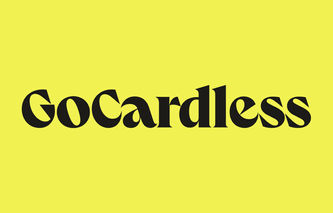
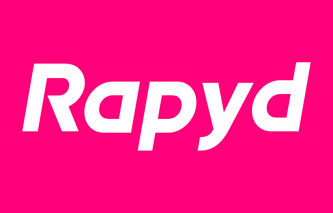
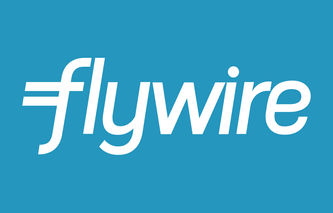
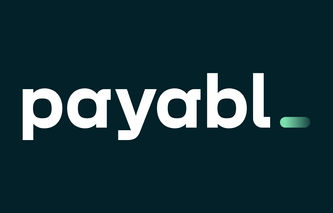
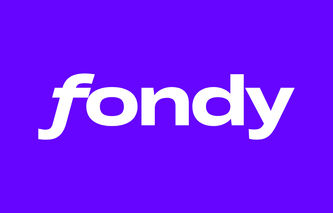
.png)







.png)


.png)
.png)